Julaiti Alafate
Experimental Design for Bathymetry Editing
Jul 15, 2020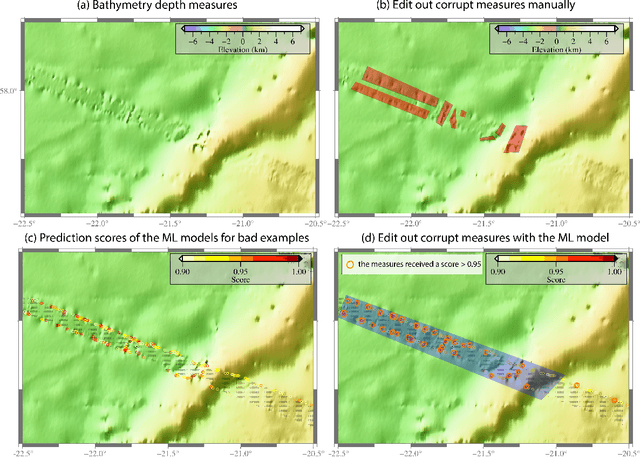
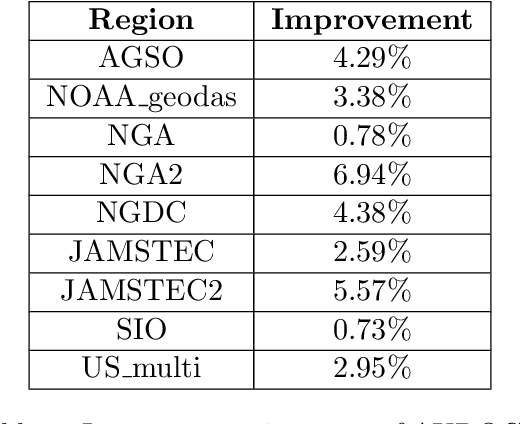
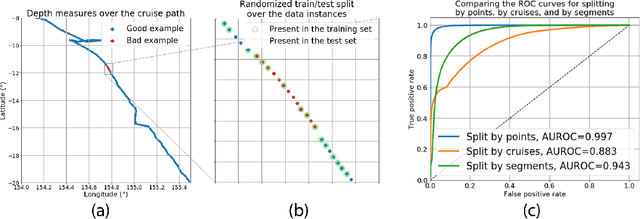
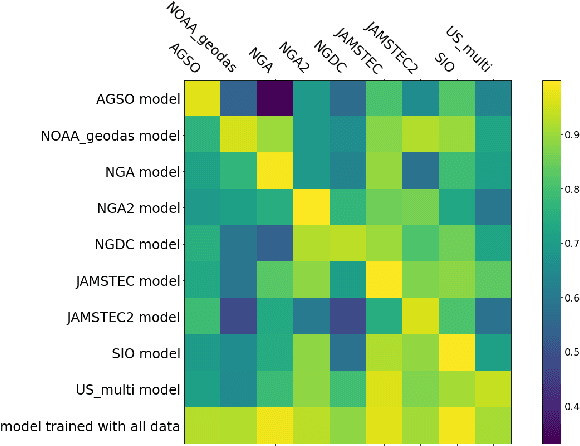
Abstract:We describe an application of machine learning to a real-world computer assisted labeling task. Our experimental results expose significant deviations from the IID assumption commonly used in machine learning. These results suggest that the common random split of all data into training and testing can often lead to poor performance.
Faster Boosting with Smaller Memory
Jan 25, 2019



Abstract:The two state-of-the-art implementations of boosted trees: XGBoost and LightGBM, can process large training sets extremely fast. However, this performance requires that memory size is sufficient to hold a 2-3 multiple of the training set size. This paper presents an alternative approach to implementing boosted trees. which achieves a significant speedup over XGBoost and LightGBM, especially when memory size is small. This is achieved using a combination of two techniques: early stopping and stratified sampling, which are explained and analyzed in the paper. We describe our implementation and present experimental results to support our claims.
Tell Me Something New: A New Framework for Asynchronous Parallel Learning
May 23, 2018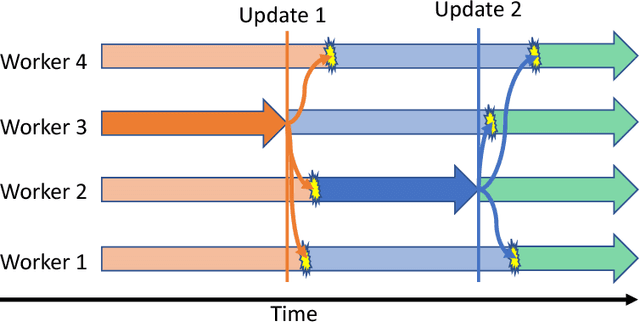

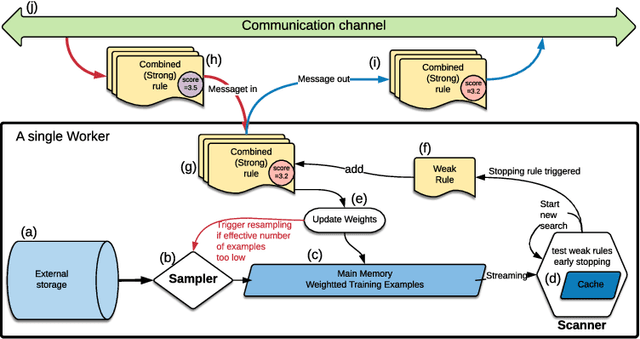
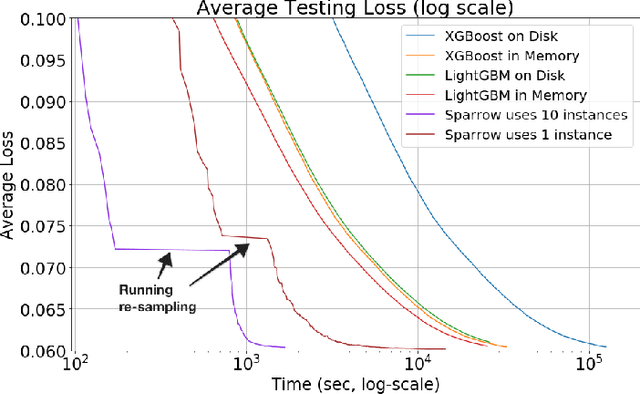
Abstract:We present a novel approach for parallel computation in the context of machine learning that we call "Tell Me Something New" (TMSN). This approach involves a set of independent workers that use broadcast to update each other when they observe "something new". TMSN does not require synchronization or a head node and is highly resilient against failing machines or laggards. We demonstrate the utility of TMSN by applying it to learning boosted trees. We show that our implementation is 10 times faster than XGBoost and LightGBM on the splice-site prediction problem.
 Add to Chrome
Add to Chrome Add to Firefox
Add to Firefox Add to Edge
Add to Edge